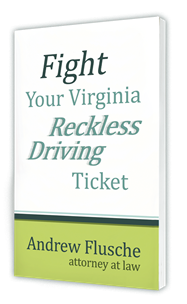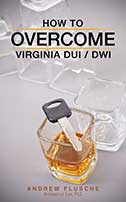[VIDEO] Traffic Myth: You Have to Answer Police Questions
You have the right to remain silent and there are times when you should invoke this right. Contact me about your Virginia traffic or misdemeanor case today.
Video Transcription
Traffic myth: you have to answer police questions. False.
Hi, I’m Andrew Flusche, your Virginia DUI and Traffic Attorney. A lot of people think that if you’re pulled over by the police, you have to answer all their questions, and that’s simply not true. Now I’m not encouraging anyone to be rude to police. I respect the job they do and the hard work they have to put up with trying to keep us safe. However, you need to know your rights. Unfortunately, the police are not going to explain your rights to you on the side of the road. It’s up to you to understand your rights ahead of time. You do not have to submit to police questioning.
Now, if the police are investigating someone else’s crime and are asking you questions about it as a witness, you can’t lie to the police. That is a crime all by itself, of lying to the police about someone else’s crime. If the police are question you about your own crime, you do not have to talk to them, and lying is not an offense. In any circumstance, while you’re just being questioned by the police on the side of the road, no one has to talk to them. You have the absolute right to simply refuse to answer questions. If you’re being investigated for something like DUI or DWI, or even a traffic accident, you can simply say, “I invoke my right to remain silent,” and keep your mouth shut.
If you invoke your right to remain silent, and then you go on to answer questions, then invoking your right to remain silent did nothing, because you voluntarily now waived your right to remain silent by responding to questions. If you just invoke your right to remain silent, and just close your mouth and don’t answer any questions, none of that can be used against you. Now, I’m not saying in every case that that’s what you should do. In a DUI or DWI investigation, that’s usually the smart approach.
If you’re in a minor fender bender, it might be in your advantage to talk to the police and explain what happened. You might not actually be guilty. The problem is you may not know whether or not you were at fault, and then the police will make that determination for you and you might be facing a ticket. The most important thing to know is you do not have to talk to the police. You do have the right to remain silent, and you don’t have to answer any questions that you’re being asked of, even if the police are investigating a crime that they think you may have committed on the side of the road.




